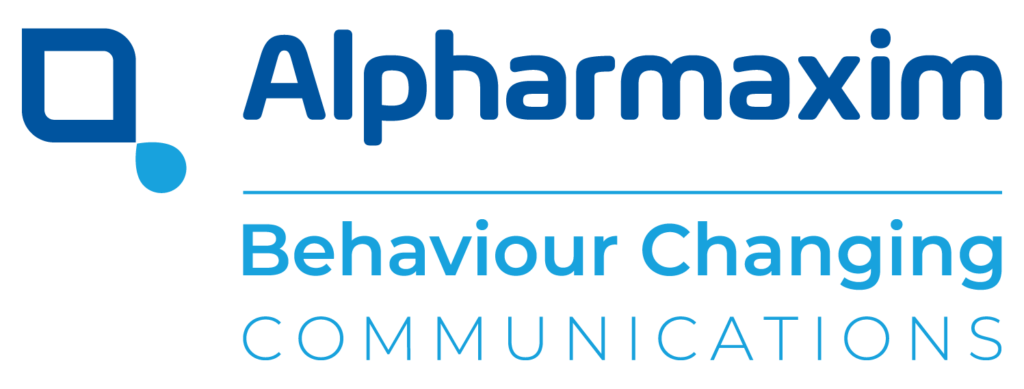Written by: Josh Lilly
Josh is a Senior Medical Writer at Alpharmaxim Healthcare Communications
Immunisation against infectious diseases via vaccination is one of the greatest successes in modern medicine, with unprecedented ongoing benefits for society. A key milestone highlighting the power of vaccination occurred in 1980, when the World Health Organization (WHO) announced the worldwide eradication of smallpox – a disease that once killed up to 35%1 of its victims and was responsible for 300–500 million deaths.2
Vaccination is currently estimated to prevent 2–3 million deaths every year.3
Currently, vaccination prevents sickness from diseases such as tetanus, diphtheria, whooping cough, measles and influenza, and is estimated to prevent 2–3 million deaths every year.3 Paradoxically, in spite of the undeniable success of vaccination, anti-vaccine lobbying (from anti‑vaxxers) continues to thrive. Indeed, measles and mumps are on the rise in the UK and many other countries around the world,4 amid fears and misconceptions about the measles, mumps and rubella (MMR) vaccine.
Misconceptions about vaccination
While some people may have religious or philosophical objections about vaccination, others have misconceptions about their safety or incorrectly believe that vaccine-preventable diseases do not pose a serious health risk. Although it is true that vaccines can cause mild and temporary adverse events (such as a sore arm or a mild fever), serious adverse events (such as an allergic reaction) have been proven to be extremely rare.5
Unfortunately, the spread of misconceptions and misinformation about vaccination is not a new phenomenon. For example, in 1998, now‑discredited research published in The Lancet falsely reported a link between the MMR vaccine and autism.6 In the years following the discreditation of this research, public trust in vaccinations began to recover; however, the proliferation of anti-vaxxer activity on social media in recent years has led to a renewed threat to public health.7
The role of social media
A report, in early 2019, by The Guardian newspaper, found that Facebook search results for groups and pages about vaccination were dominated by anti-vaccine propaganda and that YouTube’s recommendation algorithm directed viewers away from fact-based medicine, towards anti-vaccine misinformation.7 It is this sharing of misinformation on social media platforms that left parents unable to distinguish truth from rhetoric, contributing to vaccine hesitancy – a problem that was listed in ‘Ten threats to global health in 2019’ by the WHO.8 To further highlight the problem, more than half a million children in the UK went unvaccinated against measles between 2010 and 2017,4 and unfortunately, the UK lost its measles-free status in 2019.9
Curbing the spread of anti-vaxxer misinformation
In response to mounting pressure, social media platforms are beginning to make changes to their systems to decrease the spread of anti‑vaccine misinformation. In 2019, Facebook announced that it would no longer recommend offending pages and groups, and furthermore, it would block advertisements that contain false content.10 It is notable that other online companies have also taken steps to reduce the spread of misinformation.
The WHO listed vaccine hesitancy in the ‘Ten threats to global health in 2019’.8
For example, Amazon Prime has removed antivaccine documentaries, and YouTube has stopped running anti-vaccine adverts.11 This is, however, only one piece of the puzzle as reassuring parents and disseminating accurate information about the importance of vaccination is necessary to regain public trust. Importantly, it has recently been announced that Facebook and Instagram will steer users searching for vaccine data to the WHO’s research in an effort to direct people to accurate information.12
Despite these steps, more needs to be done to reduce vaccine hesitancy. According to Dr Tedros Adhanom Ghebreyesus, the WHO’s Director‑General, “Online efforts must be matched by tangible steps by governments and the health sector to promote trust in vaccination and respond to the needs and concerns of parents.”12 Finally, it is important to note that we all have a key role to ensure that accurate information about the benefits and safety of vaccination are communicated, and to report misinformation circulating on social media.
References
1. The History of Vaccines. Disease eradication. 25 January 2018. https://www.historyofvaccines.org/content/articles/disease-eradication. Accessed 15 January 2020;
2. Holmes KK, Bertozzi S, Bloom BR, et al. Major Infectious Diseases: Key Messages from Disease Control Priorities. In: Holmes KK, Bertozzi S, Bloom BR, et al., eds. Major Infectious Diseases. 3rd edn. Washington (DC): The International Bank for Reconstruction and Development/The World Bank; 3 November 2017. https://www.ncbi.nlm.nih.gov/books/NBK525197/. Accessed 15 January 2020;
3. World Health Organization (WHO). Immunization. 5 December 2019. https://www.who.int/news-room/facts-in-pictures/detail/immunization. Accessed 15 January 2020;
4. United Nations International Children’s Emergency Fund (UNICEF). Over 20 million children worldwide missed out on measles vaccine annually in past 8 years, creating a pathway to current global outbreaks [press release]. 24 April 2019. https://www.unicef.org/press-releases/over-20-million-children-worldwide-missed-out-measles-vaccine-annually-past-8-years. Accessed 15 January 2020;
5. Centers for Disease Control and Prevention. Measles, mumps, and rubella (MMR) vaccine safety. 28 September 2018. https://www.cdc.gov/vaccinesafety/vaccines/mmr-vaccine.html. Accessed 15 January 2020;
6. Wakefield AJ, Murch SH, Anthony A, et al. RETRACTED: Ileal-lymphoid-nodular hyperplasia, non-specific colitis, and pervasive developmental disorder in children. Lancet 1998;351(9103):637–641;
7. Wong JC. How Facebook and YouTube help spread anti-vaxxer propaganda. The Guardian. 1 February 2019. https://www.theguardian.com/media/2019/feb/01/facebook-youtube-anti-vaccination-misinformation-social‑media. Accessed 15 January 2020;
8. World Health Organization (WHO). Ten threats to global health in 2019. https://www.who.int/emergencies/ten-threats-to-global-health-in-2019. Accessed 15 January 2020;
9. Health Protection Scotland. UK loses ‘measles-free’ status. 27 August 2019. https://www.hps.scot.nhs.uk/publications/hps-weekly-report/volume-53/issue-34/uk-loses-measles-free-status/. Accessed 15 January 2020;
10. Bickert M. Facebook: combatting vaccine misinformation. 7 March 2019. https://about.fb.com/news/2019/03/combatting-vaccine-misinformation/. Accessed 15 January 2020;
11. Shama E. WHO partners with Facebook stop the spread of inaccurate vaccine information. CNBC. 5 September 2019. https://www.cnbc.com/2019/09/05/who-partners-with-facebook-stop-the-spread-of-inaccurate-vaccine-information.html. Accessed 15 January 2020;
12. World Health Organization (WHO). Vaccine misinformation: statement by WHO Director-General on Facebook and Instagram. 4 September 2019. https://www.who.int/news-room/detail/04-09-2019-vaccine-misinformation-statement-by-who-director-general-on-facebook-and-instagram. Accessed 15 January 2020


